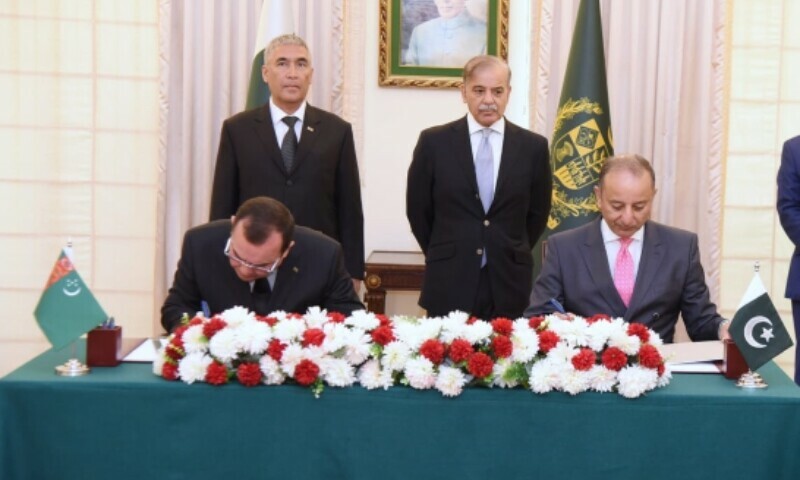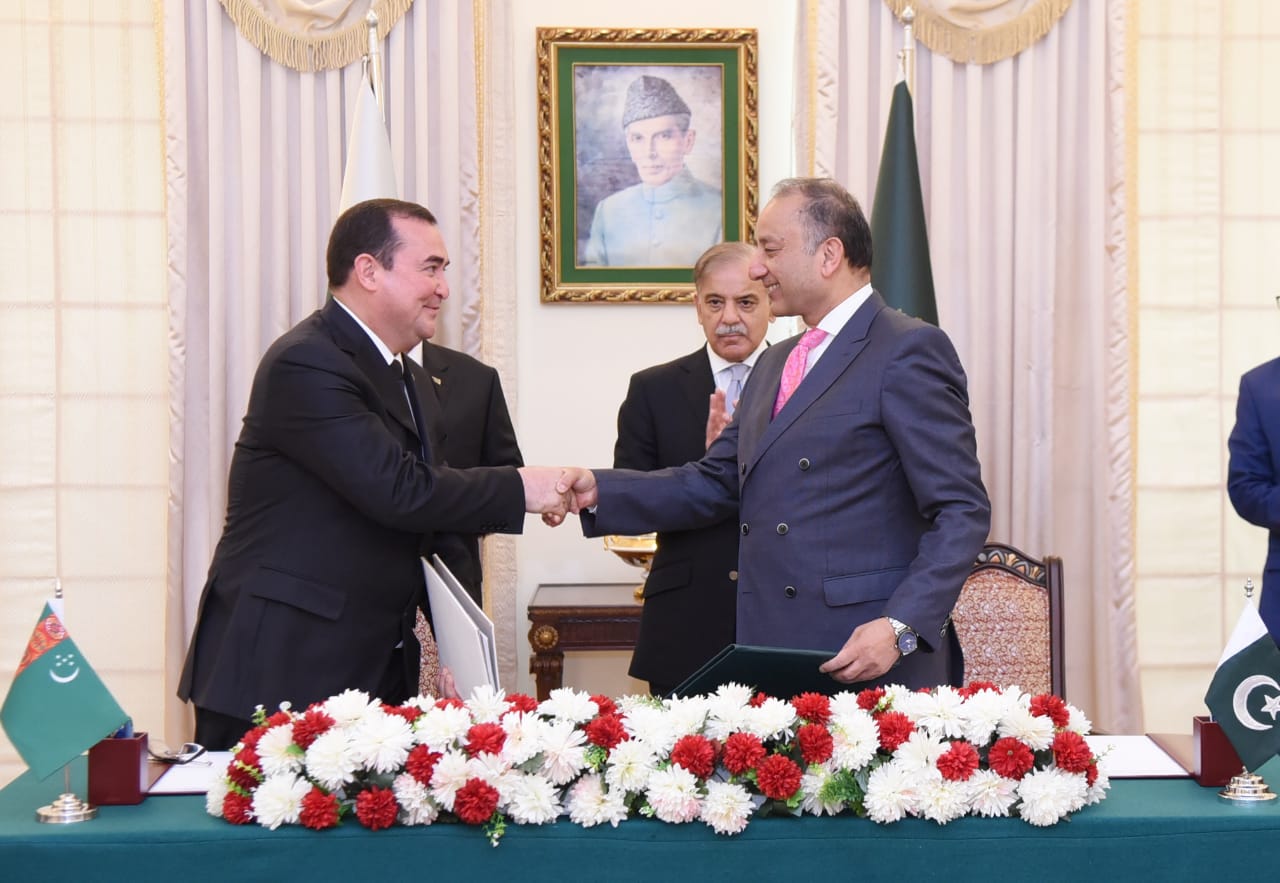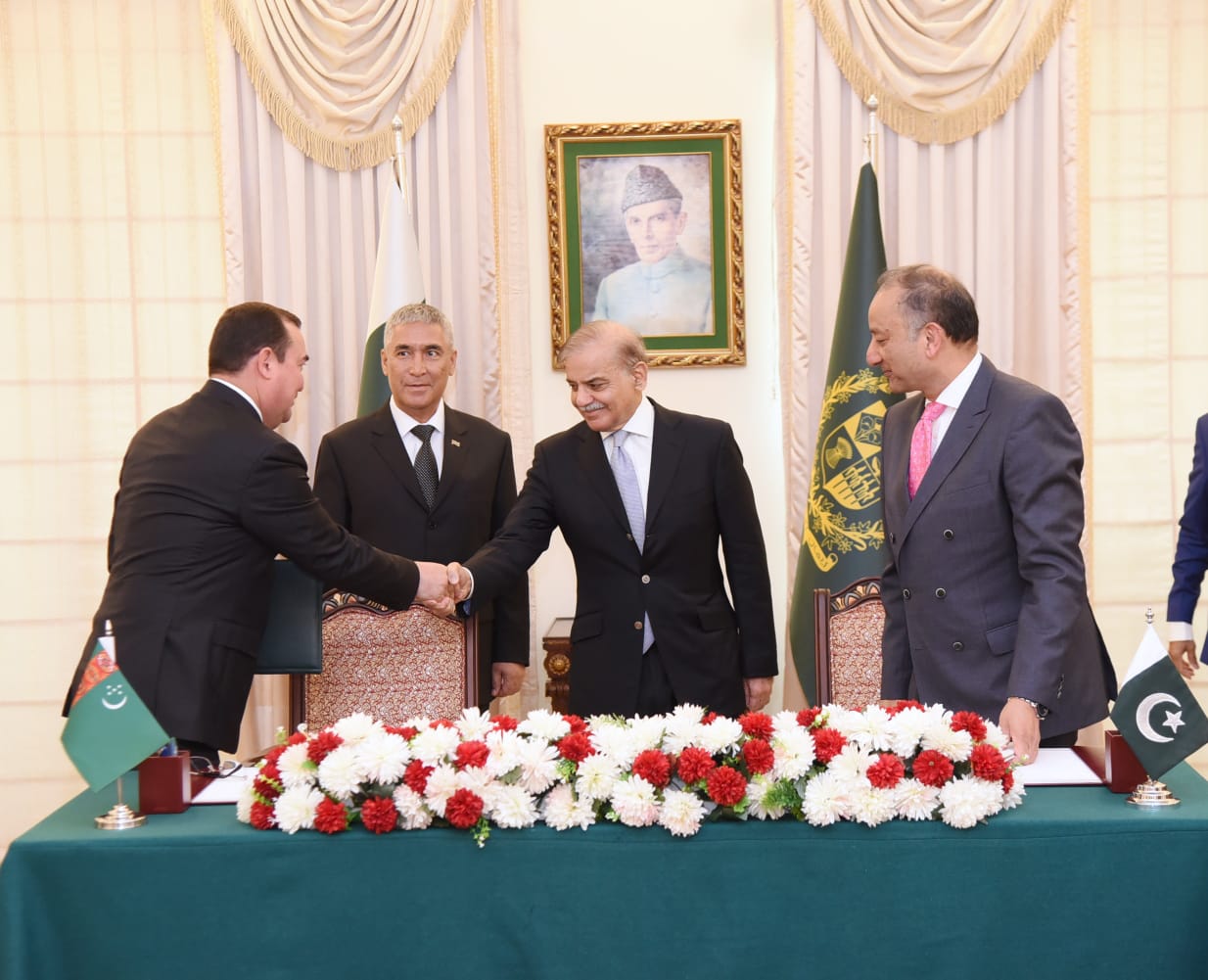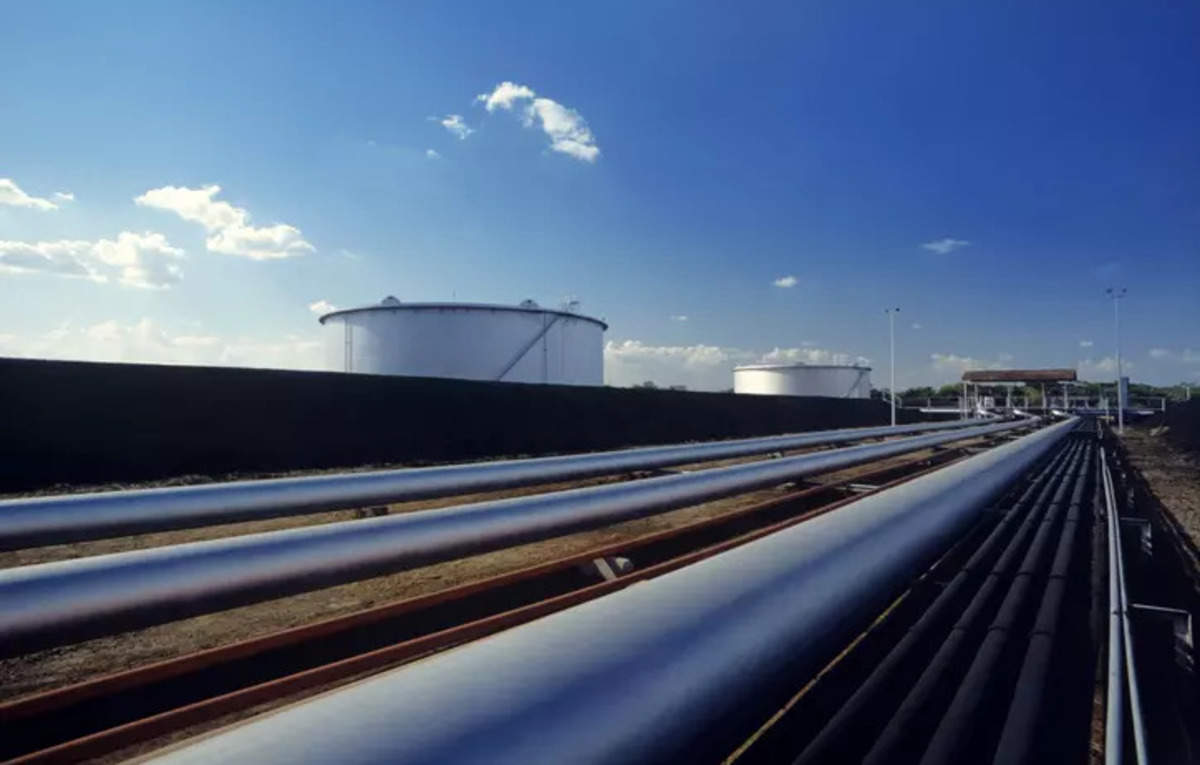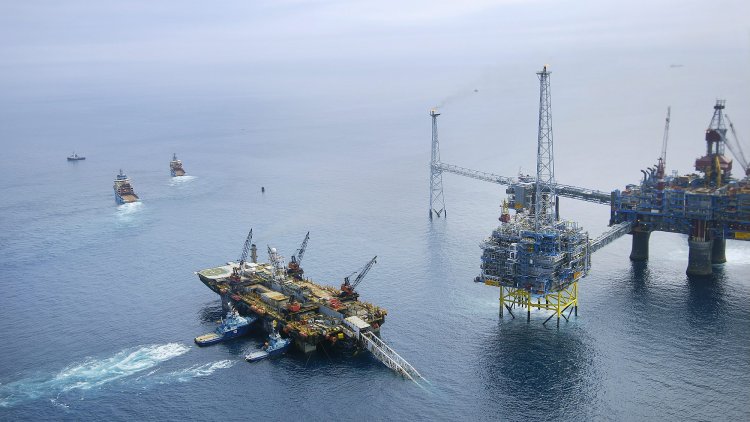Revival of TAPI Pipeline Project Brings Serious Geopolitical Implications for Russia
Turkmenistan and Pakistan continue their talks on the revival of the Turkmenistan–Afghanistan–Pakistan–India (TAPI) pipeline, and a bilateral meeting on the issue in Islamabad will be announced soon—possibly in late June 2023. For its part, Ashgabat is keen on moving ahead with the project, while energy-deficient Pakistan is willing to go ahead with or without India. And Kabul has said it is ready to raise a special force to provide security for the project (
Business Recorder, May 13). Some sources have stated that the potential transit revenues could make up as much as 80 or 85 percent of Afghanistan’s central budget, providing added incentives for securing the area around the prospective pipeline.
Overall, the TAPI pipeline is planned to stretch for over 1,100 miles with the capacity to transport 33 billion cubic meters (bcm) of natural gas each year from the Galkynysh Gas Field in Turkmenistan to the Indian city of Fazilka via Afghanistan and Pakistan (
Business Turkmenistan, August 23, 2022). The project was initially conceived in the early 1990s; however, the pipeline consortium was not announced until 2014 with an estimated cost of $10 billion at that time. In 2018, construction began on the pipeline but was soon stopped due to security reasons after workers clearing the area were killed by unknown assailants (
Pakistan Today, January 18, 2022).
In recent years, officials in Islamabad, Kabul and Ashgabat have been seriously considering a return to the project, which again came into the spotlight following the withdrawal of American forces and the Taliban’s takeover of Kabul in 2021. The insecurity and political instability in Afghanistan has so far been the main hurdle preventing the pipeline’s construction. Nevertheless, Taliban leaders have already assured Turkmenistan that they will provide adequate security for the project (
Express Tribune, February 1, 2022). According to a plan announced by Taliban spokesperson Bilal Karimi in January 2022, Afghanistan “will deploy a 30,000-member security unit for the security of the TAPI project. They will be providing security along the route of the project in all parts of the provinces where the pipeline is being constructed” (
Pipeline-journal.net, January 17, 2022).
India, however, has raised concerns about the logistical challenges and commercial aspects of the pipeline (
Economic Times, January 20). Specifically, New Delhi is primarily concerned about the potential hidden costs of constructing the project as well as the political uncertainties of sanctioning a pipeline that would run through the territory of geopolitical rival Pakistan (
Tribune.com.pk, February 1, 2022).
The revival and execution of the TAPI project is not without its geopolitical implications. For its part, Russia has also shown interest in the revival and construction of the pipeline. In January 2023, Zamir Kabulov, the Russian special envoy to Afghanistan, visited Kabul and presented a renewed push from Moscow to revive the stalled project. “As the situation in Afghanistan stabilizes, the participation of domestic economic operators in the construction and operation of the Turkmenistan–Afghanistan–Pakistan–India gas pipeline is possible,” said the Russian Foreign Ministry after Kabulov’s visit (
Economic Times, January 20).
Despite the profitability and commercial aspects of the TAPI pipeline, Russian officials primarily view participation in the project as politically attractive. For Moscow, the pipeline is alluring because it is not merely a gas transit project but will also connect South and Central Asia on the basis of the strategic needs and interests for the countries in both regions. Thus, as a potential key player in the project, Russia would be able to expand its influence in South Asia. On this, Kabulov has asserted, “Such a perspective appears politically attractive. The matters of supporting security for this project earlier considered to be the most challenging have lost their acuteness at this stage” (
TASS, January 31, 2022). Furthermore, one of Moscow’s top strategic goals has been to gain access to the Indian Ocean through the further development of the north-south transit corridor—something the TAPI pipeline would help fulfill (see EDM,
July 13, 2022;
April 11).
Additionally, the project is geopolitically important for Moscow. In 2021, while addressing the international conference “Central and South Asia: Regional Connectivity. Challenges and Opportunities” held in Tashkent, Russian Foreign Minister Sergei Lavrov expressed the Kremlin’s interest in participating in the construction of new regional gas transmission routes, including TAPI: “The integration of the energy infrastructure of Central and South Asia is very promising. … The Eurasian Economic Union is working on the formation of a single electricity market. This process could be synchronized with electricity supply projects in Central and South Asia” (
Business Turkmenistan, July 16, 2021).
No doubt, Russian participation in the TAPI pipeline would be a real step forward for Russia’s vision with the Greater Eurasian Partnership (GEP). The GEP has become a key component of Moscow’s regional policy, which, among other goals, seeks to assemble “a network of free trade areas and inter-regional trade and economic alliances, and connecting integration projects throughout the vast Eurasian space” (
Russiancouncil.ru, September 28, 2020).
Moreover, faced with Western sanctions over its invasion of Ukraine, Russia wants to strengthen its strategic partnership with energy-rich Turkmenistan (see EDM,
December 15, 2022; May
11,
18). Moscow is interested in participating in the TAPI pipeline project in an effort to divert its energy exports away from Europe toward Asia. In this, Turkmenistan has the potential to be a transit hub for Russian energy and goods exported to South and Central Asia. In truth, as one expert has pointed out, Ashgabat is unwilling to export gas to Turkey and further to Europe if that would endanger its partnership with Moscow: “Ashgabat is clearly coming down on the side of Russia and spurning opportunities to move its gas in a Western direction. It has chosen to move towards its authoritarian brothers-in-arms, Russia and Iran” (
Radio Free Europe/Radio Liberty, February 27). Indeed, for Turkmenistan, besides generating additional income, the TAPI pipeline would be important for reducing the country’s reliance on China, the largest customer of Turkmenistani gas since 2010.
And as security was one of Moscow’s gravest concerns, for now, it seems Russian officials are satisfied with the Taliban government’s assurances. On January 19, regarding Kabul’s security plan, Russian Energy Minister Nikolai Shulginov reportedly declared that, if “some security issues” are resolved, Russia would seriously consider joining the TAPI project (
TASS, January 19).
The TAPI pipeline is a massive economic and business venture that has the potential to be immensely beneficial to all countries involved. Yet, due to potential security concerns and certain geopolitical difficulties—Iran and India may remain resistant to the project, opting instead for the revival of the Iran–Pakistan–India pipeline—the actual prospects for implementation remain uncertain. Nevertheless, the key players continue to engage in discussions about bringing the pipeline to fruition, including Russia, which is keen to play a central role in emerging energy and transit projects to expand its influence in South and Central Asia.
Turkmenistan and Pakistan continue their talks on the revival of the Turkmenistan–Afghanistan–Pakistan–India (TAPI) pipeline, and a bilateral meeting on the issue in Islamabad will be announced soon—possibly in late June 2023. For its part, Ashgabat is keen on moving ahead with the project...

jamestown.org
Good but what happened to the pipeline from Iran?
That will go ahead as planned eventually. Unlike in the past, the West does not oppose Pakistan getting oil from Russia and probably won't with Iran. Also crucial to note, the Arabs find themselves at peace with Iran. it only makes sense to implement plans now. It's in Pakistan's interests to diversify its energy sources not only as an importer but also as an exporter.
Pakistan's plans to diversify energy sources:
Saudi Aramco refinery in Gwadar, Pakistan
TAPI (Turkmenistan-Afghanistan-Pakistan-India) gas pipeline
IPI (Iran-Pakistan- india) gas pipeline
Iran-Pakistan electricity transmission line
LNG from Qatar
LNG from Azerbaijan
Crude Oil from Russia
CASA 100 (Kyrgystan-Pakistan) hydroelectric transmission line
PSGP (Pakistan Stream Gas) from Russia


